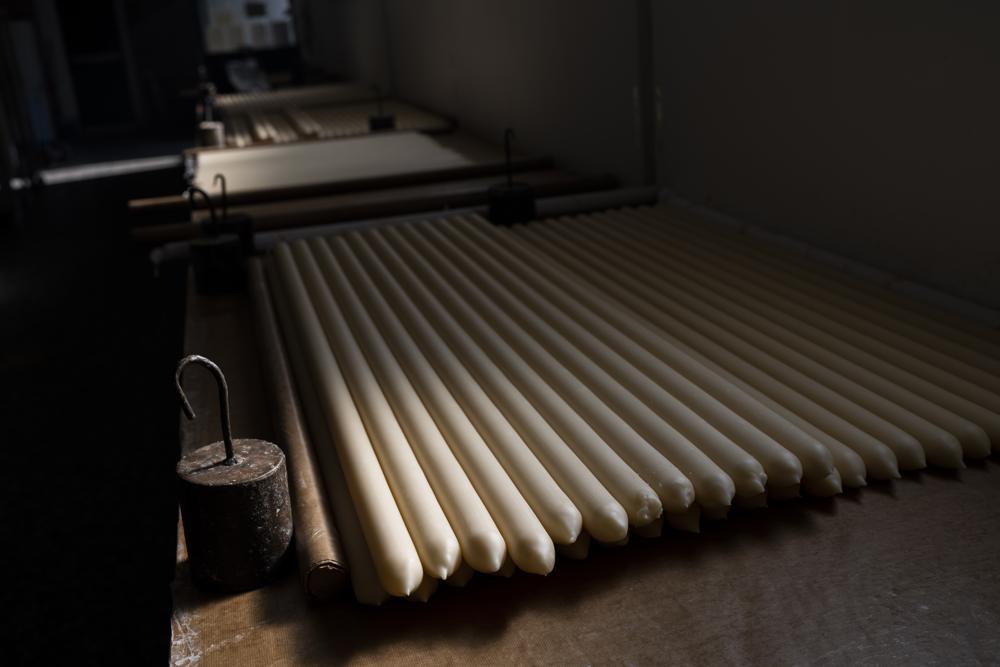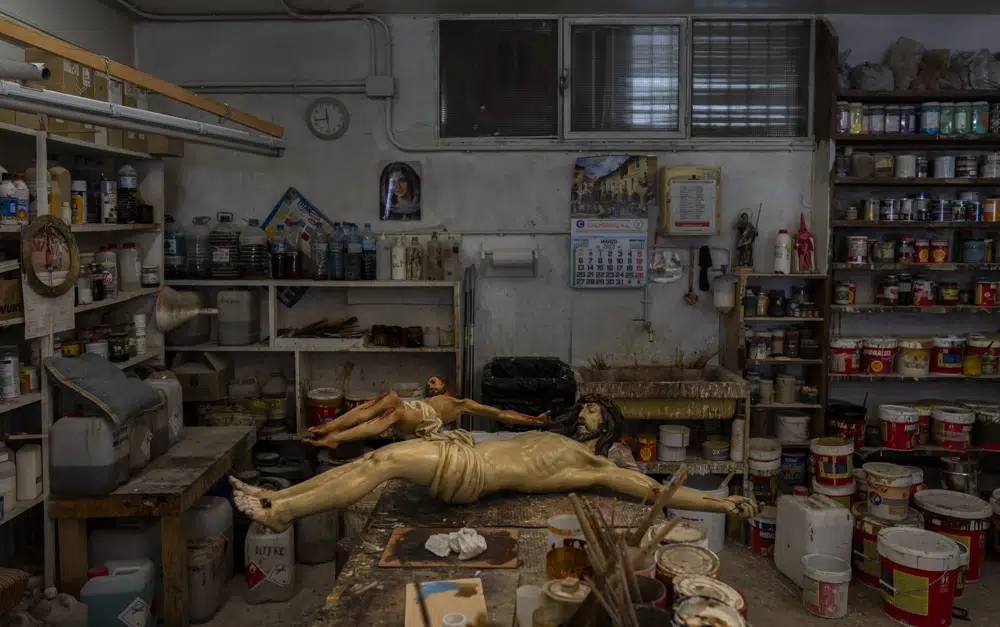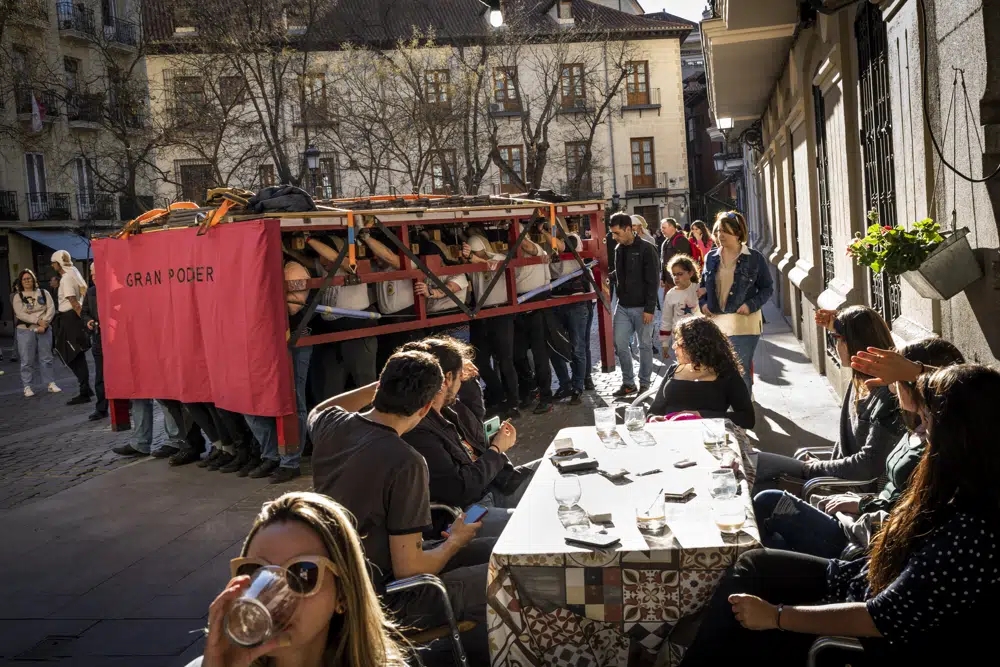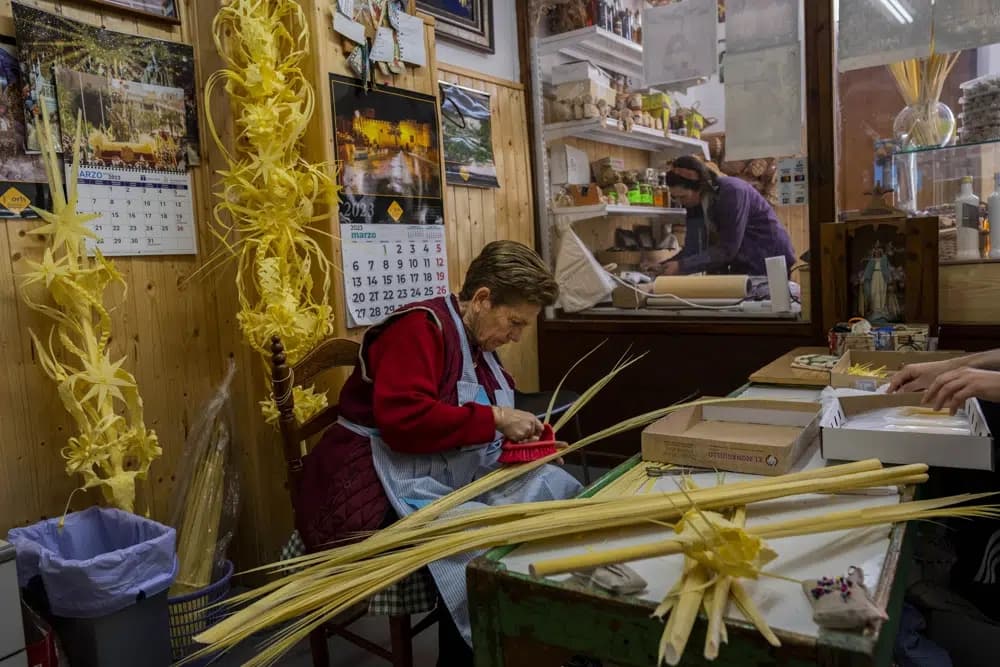ELCHE, Spain — Spain is getting ready for one of its most revered holiday periods of the year: Easter Week, which means thousands of colorful and noisy religious street processions that draw multitudes onto the streets to watch.
The central pieces of the processions are the richly decorated gigantic floats bearing sculptures of Jesus or the Virgin and often weighing up to a ton or more.
The ceremonies see brotherhoods of “nazarenos,” or penitents, with tall conical hats, monkish robes and hoods carrying or escorting the magnificent carriages through ancient streets of cities and towns nationwide.

While the processions take place over just a handful of days, preparations are a year-round affair and involve a wide range of small, sometimes family-run businesses. The artisans are responsible for producing all the regalia, from conical hats and huge candles to palm leaf bouquets. There are also workshops in charge of the conservation of religious sculptures, their dresses and adorning cloths.
“It’s yearlong preparation,” says Paqui Serrano, an artisan palm leaf bouquet-maker in Elche, southeast Spain, the heart of Spain’s palm tree agriculture.
Tying up the leaves on the palm trees starts in January. The process keeps the leaves a golden white instead of turning green.

Once harvested, they are woven into delicate floral decorations and set on pedestals that are carried during the processions.
Elche traditionally sends such bouquets to public figures. This year, the recipients included Pope Francis and Spain’s Queen Letizia.
Serrano’s family workshop stretches back over more than four generations and is one of five family-based palm leaf outfits in the city.
She said new techniques allowing for the leaves to be conserved gives them more time to design more intricate braids. The work, while often painstaking, can be relaxing, she said..
“As you can see, the machines and tools are our hands, needles and scissors, and it can be stressful,” Serrano explained. “But when you are working at what you like, well, it can almost serve as a therapy because it relaxes you a lot.”

“Out of respect for the palm tree,” each tree tree is allowed to rest for between three to five years before its leaves are used again, she said.
Fernando Chicharro Méndez, head of the team float bearers in Madrid’s Jesus of the Great Power and Macarena Brotherhood, has carried floats for 25 years. He says the task of carrying the floats has varied little in the brotherhood’s 83 years of existence.
Chicharro says he and his son, another float bearer, and family are constantly occupied with the processions and their preparations.
We live it daily,” he said. “In my family, all are brotherhood members and experience it with great faith.”
Chicharro’s float is carried by 35 bearers, with brothers on standby to relieve them along the procession route. Their practice sessions frequently pique the interest of tourists and Spaniards alike as they wind their way through the streets in the weeks before Easter.
Easter this year begins with Palm Sunday on April 2. A sacred holiday for Spaniards, it generally sees millions taking trips out of town, often just to witness the processions.
Giles contributed from Madrid.












